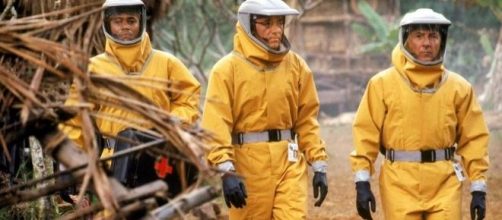Science has marked our lives in a way that cannot be undone. As new-year approaches, lists of what was found relevant in 2014 are appearing everywhere and the list of the most shocking science facts of 2014 isn't the exception. In the next few lines we will present you what we thought were the most important moments or science-related facts that marked the 2014. We will begin with what can easily fall in a bad news category and end with those on the good side so that you do not leave here feeling blue (or so we hope).
Nº 1 The Ebola Outbreak
The outbreak, which apparently began in West Africa and that has already taken the lives of thousands of people was the worst in history, at least that we know of.
Perhaps one of the undesired side-effects of science is that the world has become smaller by creating a network that connects almost every country in the world. This might be good for economics and communication, but it is also good for helping viruses and bacteria propagate. On the bright side, for the first ever some people who contracted the illness also successfully recovered from it, which could mean an important step into eradicating this mortal disease. That is why this is the most shocking science fact in 2014.
Nº 2 The Antarctic ice sheets face serious damage
The West sheet entered in a clear state of decay. The Amundsen Sea has raised its temperature (caused by human activity say experts, but denial will surely continue). This caused huge glaciers to break, collapse and fall right into the Amundsen Sea. This is expected to raise the sea level from all around the world considerably. Main problem is that as more ice melts, the more we will be feeling the effects of global warming. Ice reflects most of the heat coming from the Sun back to outer space, but as ice melts more heat gets captured. "Damage might already be irreversible" warn scientists. On the bright side, the quest for new energy sources is still on and solar panels already passed by far the 30% efficiency barrier. Should this continue, we could be well on our way to reverse climatic change (if it is not already too late, as some experts seem to think).

